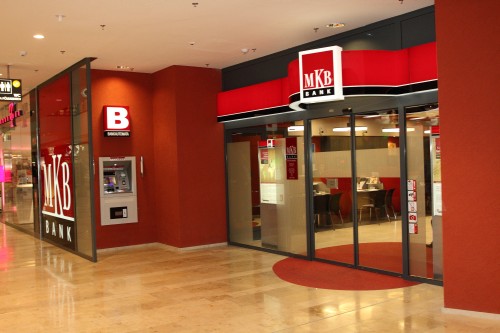János Lázár, the minister in charge of Viktor Orbán’s Prime Minister’s Office (PMO), can count yet another feather in his cap. MKB Bank, previously owned by Germany’s BayernLB (the Bavarian State Bank), was recently nationalized. While the nationalization wasn’t a surprise, most of the press raised its collective eyebrow when at 6:30PM on Thursday, they read in the freshly published issue of Magyar Közlöny, the government’s official gazette, that effective 7:00PM (so precisely 30 minutes later), MKB Bank would fall under the purview of the PMO. Journalists of the liberal hvg.hu publication were the first to find this piece of news, noting that the bank was “placed into Mr. Lázár’s clutches with lightning speed.”
The government’s decision to nationalize MKB Bank is part of a much trumpeted strategy to ensure that at least 50% of Hungary’s banking sector is in “Hungarian hands.” At the moment, the country’s largest bank – OTP Bank – is controlled by Hungarian multimillionaire Sándor Csányi, once a close business ally of the current right-wing government. But the sector has, indeed, been dominated by major European banks, including Austria’s Erste Bank (which purchased Hungary’s defunct Postabank), CIB and Raiffeisen.
The state’s decision to purchase 99.99% of MBK Bank’s shares makes relatively little economic sense and one of the only explanations for the government’s decision is that it hopes to curb the influence of Mr. Csányi’s OTP Bank. In fact, OTP Bank had put in an offer to purchase MKB Bank from the Bavarians this past summer, but the government submitted a higher bid and has now purchased the loss-making financial institution for 55 million euros.
MKB Bank was doing reasonably well prior to the global financial crisis, but since then it struggled under the weight of commercial debtors who were defaulting on their loans. MKB Bank, like many financial institution in Hungary, provided loans quite liberally to a wide range of real estate and development projects, especially for industrial parks, shopping malls and office buildings. By 2013, a staggering 31% of its commercial debtors were effectively defaulting on their loans. Between 2010 and 2013, MKB Bank generated losses exceeding 400 billion forints–larger losses than any other financial institution in Hungary.
BayernLB pumped 251 billion forints into the poorly performing bank between 2009 and 2013, and this fact flies in the face of the Orbán government’s reasoning that foreign banks are undesirable, because they suck funds out of their “host” country. Economists who oppose the current strategy of driving foreign banks out of the country note that these are among the few institutions to infuse much needed capital into Hungary’s limping economy.
Yet why would the government be so intent on purchasing a bank with such massive losses? The liberal news portal, 444.hu, noted earlier that there may be more to the story than simply a desire to give Mr. Csányi a run for his money. MKB Bank’s portfolio includes a wide range of properties that the bank had financed and which are now are on the verge of foreclosure. Having the bank under the PMO’s control – and in the hands of Mr. Lázár, a top Orbán-loyalist – opens up the possibility that business circles close to Fidesz can get their hands on key commercial and industrial real estate for well below market values, especially if the current owners default on their loans.
MKB Bank is slated to remain under the PMO’s supervision until December 31st, 2018. Established in 1950, in order to handle the foreign commercial transactions of the Hungarian state, MKB was privatized gradually between 1994 and 1996, and eventually sold to Bayerische Landesbank. It currently boasts a network of 84 branches throughout Hungary.
The Orbán government’s aim to shake up the banking sector won’t end here. There is talk about the possible departure from Hungary of Erste Bank and the government is also testing the idea of creating a new postal bank.




